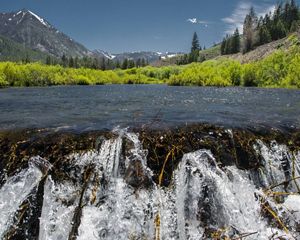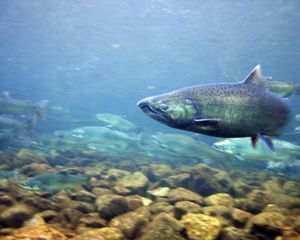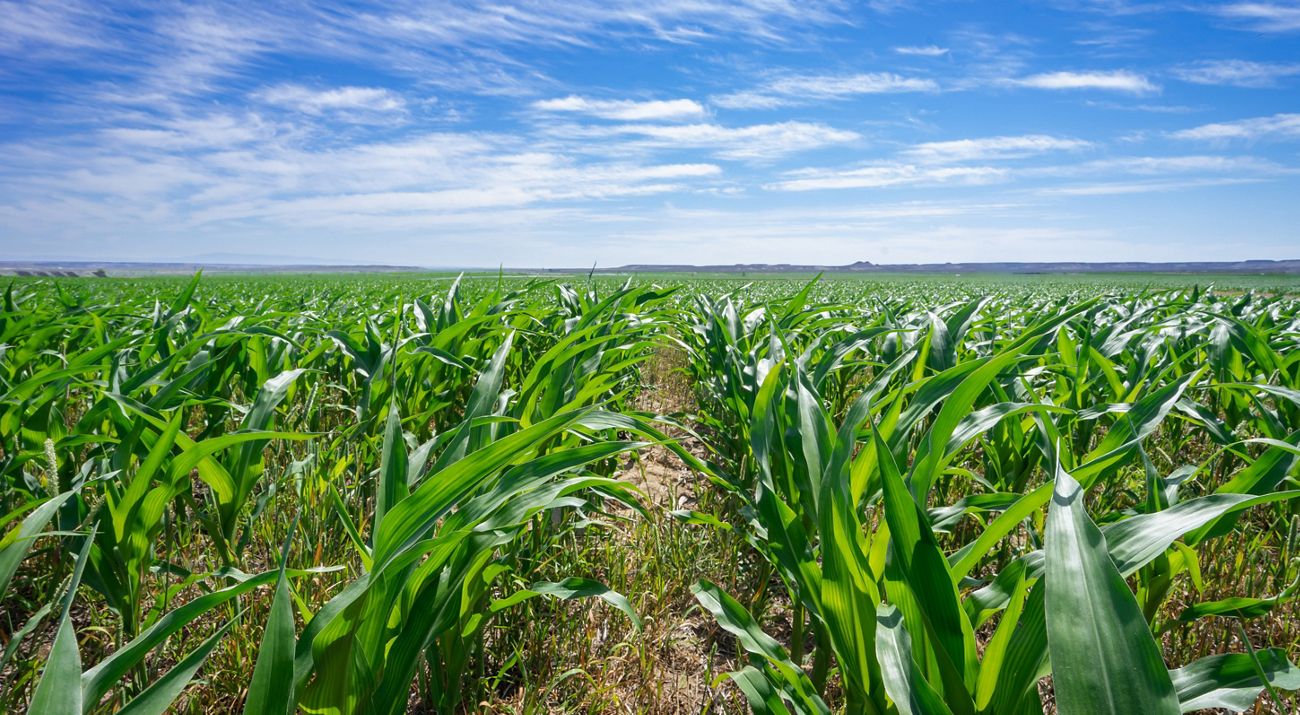
Transforming the Way We Grow Food
Regenerative agriculture practices can protect the environment and produce healthier food while reducing climate impacts.
When you think about conservation in Idaho, agriculture may not be the first thing that comes to mind. Yet, agriculture is an industry that touches nearly every aspect of life in Idaho. Roughly 22% of the state’s total land area is in cropland, and agribusiness accounts for 20% of Idaho’s gross state product each year.
In addition to potatoes, Idaho leads the nation in production of barley and is the third-largest water user in the U.S. Approximately 85% of the water supply is used to support agriculture. While agriculture is the largest contributor to greenhouse gas pollution in Idaho—which is changing the climate—farmers are also bearing the brunt of many climate change impacts, like extreme heat and drought.
Climate change is destabilizing our food system by disrupting weather patterns and throwing off the reliability of growing seasons. Climate-related changes—like prolonged drought and decreased snowpack—directly affect agricultural production and crop yields and creates economic risk for farmers. By shifting to regenerative practices that restore nature, farmers can adapt and better protect their livelihoods from the impacts of climate change.
Quote: Brad Johnson
With regenerative farming practices, we have the opportunity to create better economic and environmental conditions for Idaho's agriculture community that will last for future generations.
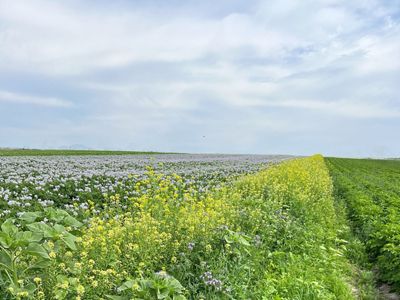
TNC's Program
Our Regenerative Agriculture Program is helping farmers make that shift and transform the way we use soil and water to grow food. We are bringing together the ingenuity of the state’s farmers and TNC’s conservation experience to disrupt a vicious cycle in which depleted soils require more expensive and polluting inputs of fertilizer and pesticides as well as more water.
Shifting to regenerative practices that restore soil health, and consequently reduce the need for fertilizers, pesticides and water, creates a sustainable food system. Healthier soils that require less fertilizer can lead to improved water quality, less water demand, a reduction in greenhouse gas emissions and more nutrient-dense food. Regenerative agriculture is a solution we can deploy right now, no technological breakthroughs required, to create a cycle that rebalances our land.
Idaho native and long-time agriculture specialist Brad Johnson is TNC’s senior regenerative agriculture advisor. “Current agricultural practices are caught in a toxic cycle of high inputs of fertilizer, chemicals and water while over-tilling the soil, which continues to degrade soil health, deplete water supplies and affect our bottom line,” says Johnson. “With regenerative farming practices, we have the opportunity to create better economic and environmental conditions for Idaho’s agriculture community that will last for future generations.”
In addition to its positive impacts on the environment, regenerative agriculture can help farmers diversify and boost their incomes through practices such as growing multiple crops or incorporating livestock grazing into their operations.
Program Goals
- Support the economic viability of Idaho’s agriculture community by reducing barriers to wide-spread adoption of regenerative practices through farm partnerships.
- Demonstrate the ecological benefits of soil health practices in key farming communities through demonstration farms and support of partnerships.
- Implement projects and initiatives that benefit soil health and broader outcomes for nature such as improving wildlife habitat or boosting water quality and quantity in rivers and streams.
- Create lasting, system-wide change that incentivizes better agricultural practices at the supply chain level and achieve a scale that makes a significant difference by forging relationships with diverse partners, including private industry leaders.
The Key Principles
Regenerative Agriculture is a system of farming principles and practices that enriches soils, increases biodiversity, improves watersheds, reduces greenhouse gas pollution and preserves the livelihoods of farmers, now and in the long run.
TNC's program focuses on implementing six key principles of regenerative ag.
Scaling up Sustainable Change
TNC is leveraging our on-the-ground expertise, credibility and science to address key barriers to soil health adoption. We are ensuring Idaho’s agriculture positively contributes to nature and people, and is resilient into the future, by providing access to region-specific information, facilitating knowledge sharing between farmers and developing supply chain incentives with corporate partners. We are working directly with farmers to implement regenerative practices and have launched multiple demonstration farms. Farmers interested in regenerative agriculture can tour the demonstration farms to see proven regenerative methods in action, such as no-till and cover crop planting.
Interested in learning about how regenerative agriculture could benefit your farm? Contact Brad Johnson, TNC’s senior regenerative agriculture advisor.
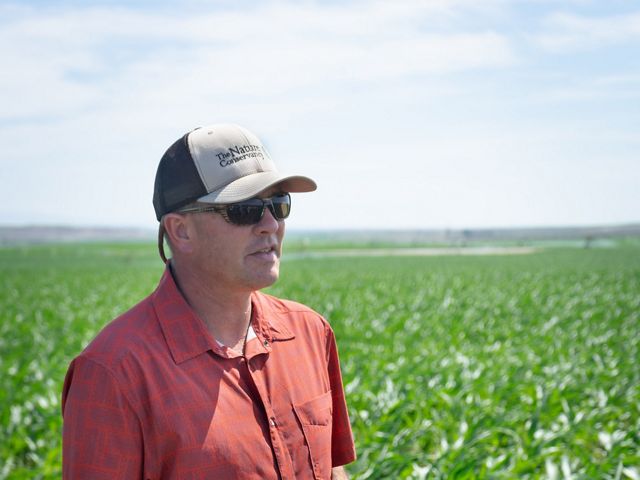
Could regenerative agriculture benefit your farm?
Contact Brad Johnson, TNC’s senior regenerative agriculture advisor, to learn more!
Brad Johnson
brad.johnson@tnc.org
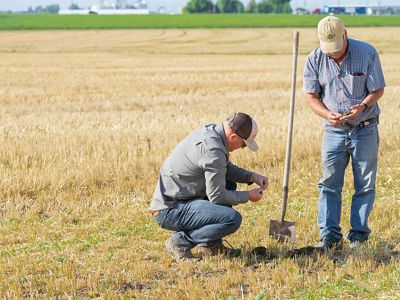
Project Highlights
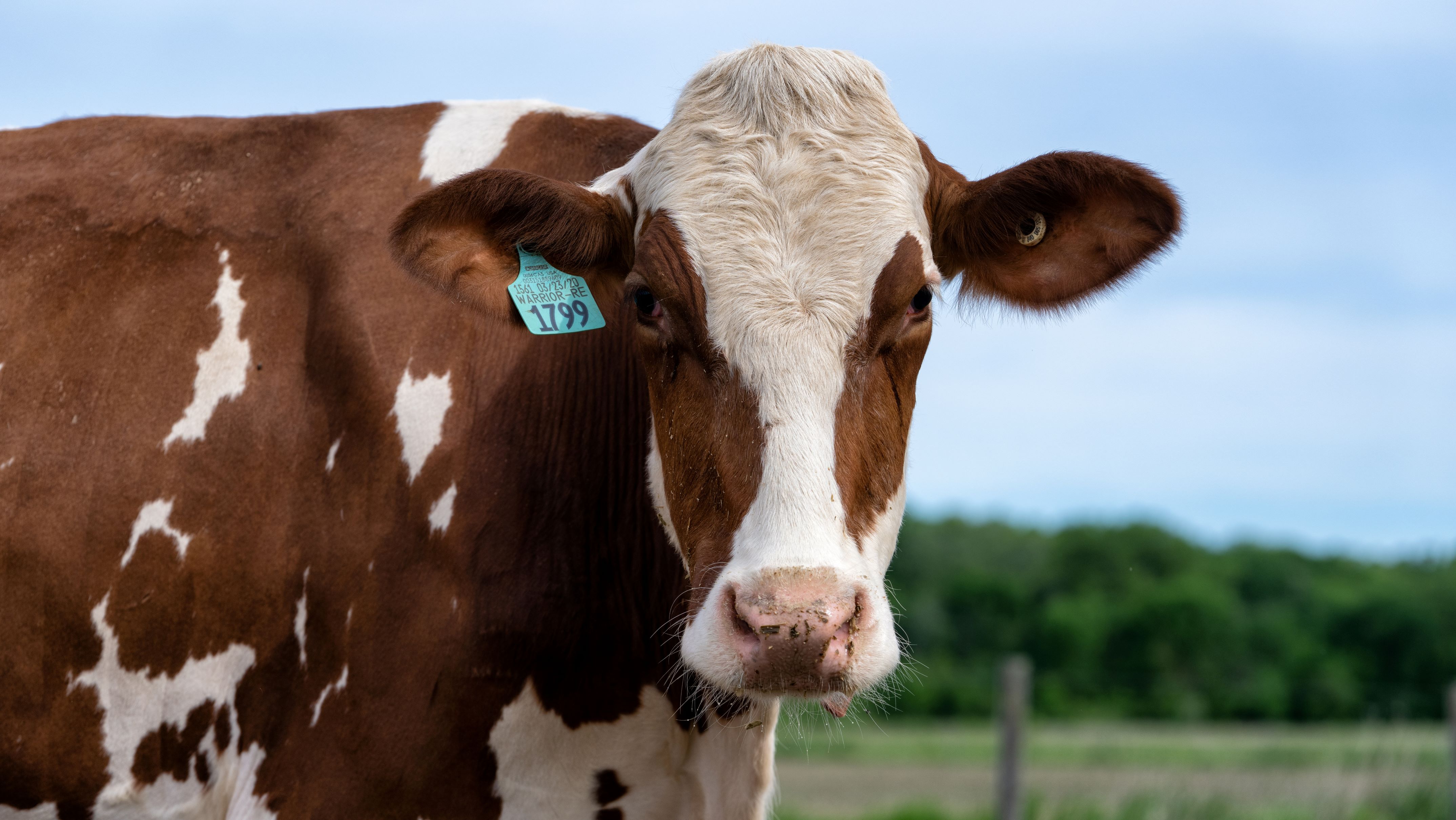
Feed in Focus
Dairy is a major part of Idaho's agricultural economy and, like most agriculture, dairy farms contribute to climate change. Greenhouse gas pollution from dairy farming happens throughout the production system—from what cows eat to how their waste is managed. The agriculture and food industries are increasingly recognizing the inherent connection between a secure food supply chain and their contribution to climate change. They’ve set ambitious goals for improving their impact on nature, particularly eliminating their production of damaging greenhouse gases. That’s why TNC has joined with partners in the industry to find climate solutions for dairy farms through the Dairy Feed in Focus (FIF) program.
Launched in 2021 by the Innovation Center for U.S. Dairy, Nestle and TNC, the FIF program is unique. It’s an industry-led effort to help improve feed production and feed efficiency on U.S. dairy farms while reducing greenhouse gas pollution. In partnership with the Idaho Dairyman’s Association, TNC is connecting with farmers who are interested in using regenerative practices. By zeroing in on feed production on our members’ farms, we can better measure the impacts of those methods on greenhouse gas pollution.
Ultimately, to work at a scale that makes a significant difference, we need to change our systems and supply chains. To that end, TNC is forging relationships with diverse partners, including industry leaders, to drive positive results for both nature and people.
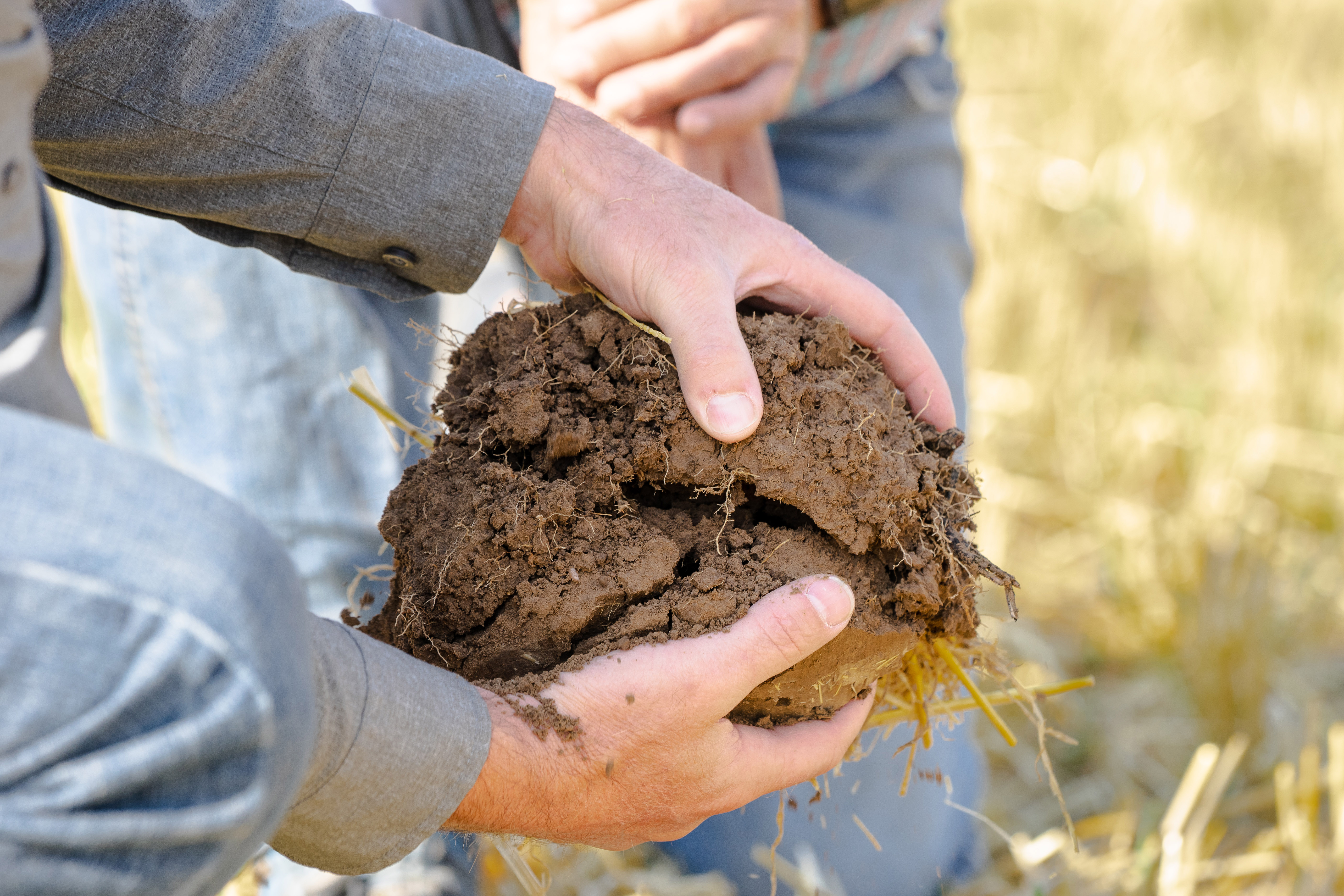
Transforming Soil on a Large Scale
Applying chemicals to kill potential pests and disease is a common agricultural practice with devastating environmental impacts, as it destroys beneficial bacteria, insects and fungi along with potentially harmful ones. Regenerative agriculture offers a better way to support balanced ecosystems, and TNC’s new partner—and largest demonstration farm to date—is proving this on a large scale.
Blake Matthews has used regenerative practices on his 2,500-acre farm in Oakley since 2011. He stopped applying chemicals in 2016 and began measuring his soil’s level of organic carbon—an indicator of how “alive” soil is with living beings and nutrients needed to sustain plant life. At first, the carbon levels were at 80 parts per million and the soil was dry, dusty and lifeless. By 2024, the soil had transformed to a rich, earthy texture with a carbon reading of 300 parts per million, thanks to the consistent implementation of practices like cover crops and reduced tillage.
The soil is so healthy that Matthews has eliminated fungicides and soil fumigants, drastically reduced insecticides and synthetic fertilizers, and uses less water. TNC’s partnership will enable Matthews to level up his techniques by incorporating companion crops and reducing tillage across the large farm.
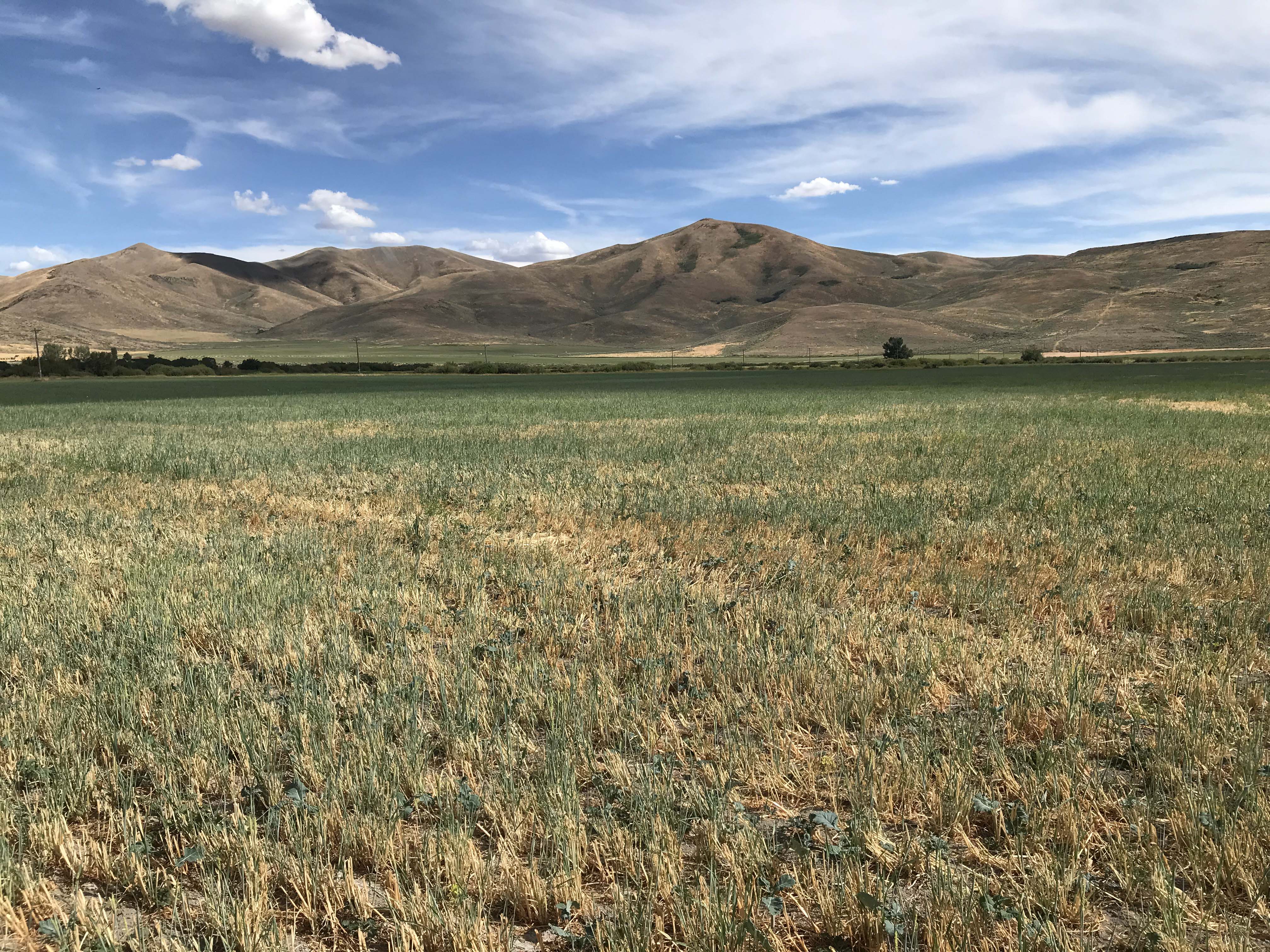
Farming Benefits for Fish
A TNC farm adjacent to Silver Creek Preserve received the first-ever Trout-Safe certification from Salmon-Safe, a leading U.S. eco-labeling organization. The farm met Salmon-Safe’s high standards for Trout-Safe certification verifying actions that protect streams and provide benefits for fish.
The designation comes after TNC began working with the farm lessee to implement regenerative agriculture practices, like cover crops and crop diversification, that enhance soil health, biodiversity and water quality in the Silver Creek watershed. The certification demonstrates how regenerative farming practices can have wide-reaching ecological effects that even benefit fish habitat.
Soil Health Guides
- Soil Health Principles (.pdf)
- Soil Coverage (.pdf)
- Living Roots (.pdf)
- Minimum Tillage (.pdf)
- Livestock Integration (.pdf)
